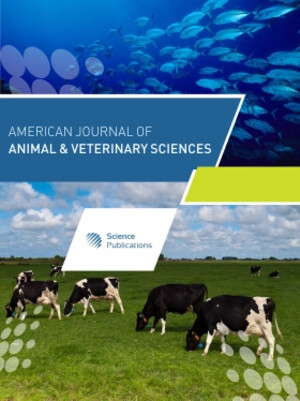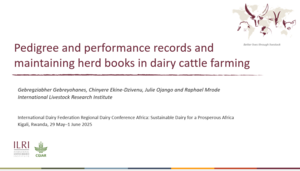
Molecular detection and typing of pathogenic Leptospira species from livestock and small mammals in Uganda
Abstract
Leptospira are bacteria that cause leptospirosis in both humans and animals. Human Leptospira infections in Uganda are suspected to arise from animal–human interactions. From a nationwide survey to determine Leptospira prevalence and circulating sequence types in Uganda, we tested 2030 livestock kidney samples, and 117 small mammals (rodents and shrews) using real-time PCR targeting the lipL32 gene. Pathogenic Leptospira species were detected in 45 livestock samples but not in the small mammals. The prevalence was 6.12% in sheep, 4.25% in cattle, 2.08% in goats, and 0.46% in pigs. Sequence typing revealed that Leptospira borgpetersenii, Leptospira kirschneri, and Leptospira interrogans are widespread across Uganda, with 13 novel sequence types identified. These findings enhance the East African MLST database and support the hypothesis that domesticated animals may be a source of human leptospirosis in Uganda, highlighting the need for increased awareness among those in close contact with livestock.
Citation
Alinaitwe, L., Wainaina, M., Dürr, S., Kankya, C., Kivali, V., Bugeza, J., Aturinda, C.J., Lubega, A., Mayer-Scholl, A., Hoona, J.J., Bahn, P., Hammerl, J.A., Roesel, K., Cook, E.A.J. and Richter, M.H. 2025. Molecular detection and typing of pathogenic <i>Leptospira</i> species from livestock and small mammals in Uganda. Epidemiology and Infection 153: e50.










